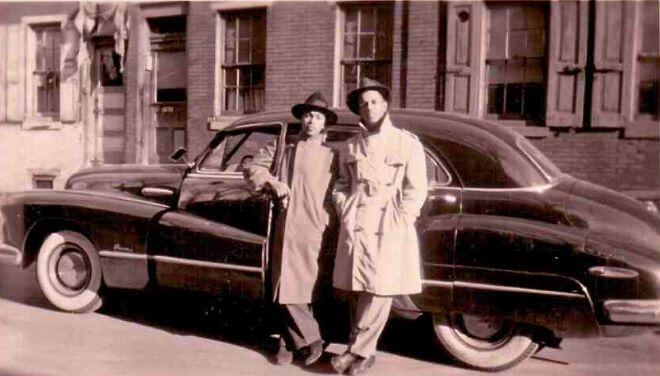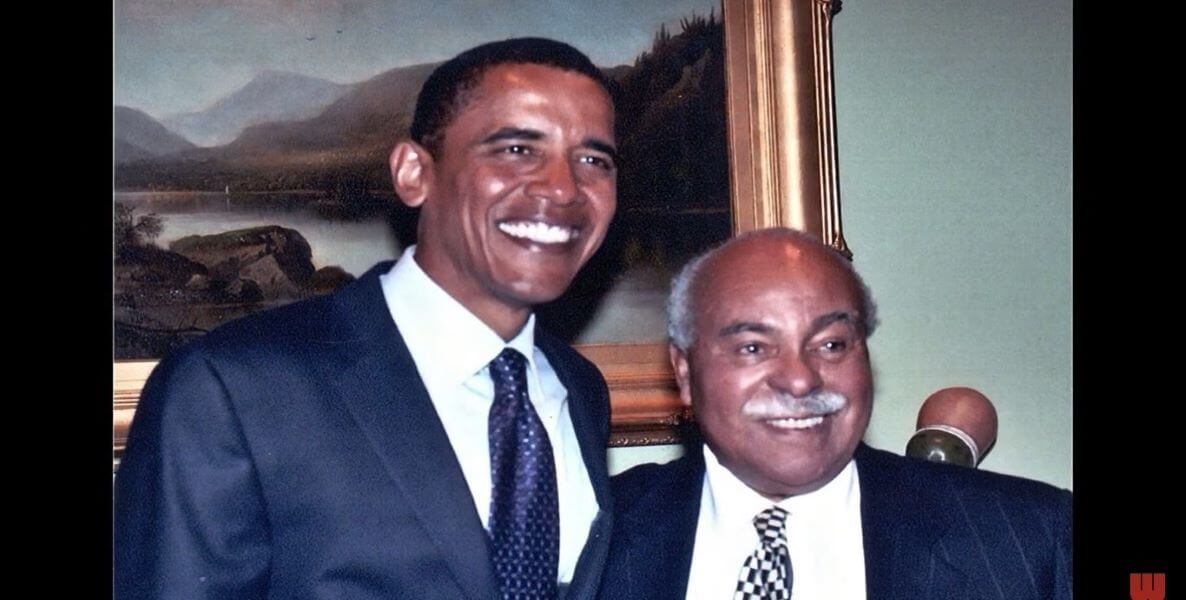On Wednesday, August 31, WURD Radio is hosting its ninth annual Founder’s Day Celebration at the Parkway Central branch of the Free Library of Philadelphia. Honoring the legacy of WURD’s founder Walter P. Lomax Jr., M.D., this is the first in-person Founder’s Day since 2019. WURD is the only Black-owned and operated talk radio station in Pennsylvania, and one of just three across the country.
The all-day event features community and business leaders discussing independent media, community health, and Black wealth creation. There will also be a job and resource fair, a mindful movement class, station-member exclusives, and live music from local artists.
President and CEO of WURD, Sara Lomax-Reese, recalls the first Founder’s Day as a small event held on Dr. Lomax’s birthday prior to his passing in 2013. It was originally conceived as a promotional event. “After my dad passed away,” Lomax-Reese says, “it took on like a much larger kind of celebration, and really, a preservation of his legacy. I feel much better about the evolution of it because he blessed it when he was alive.”
The Lomax legacy
Dr. Walter P. Lomax Jr. was an accomplished physician, entrepreneur, and philanthropist. Born in South Philly, he attended La Salle College (now LaSalle University) and Hahnemann Medical School (now Drexel’s College of Medicine). Opening his first practice in 1958 in a South Philly rowhouse, Dr. Lomax cared for Philadelphia’s underserved and marginalized. Eventually, he grew his practice to six medical centers and 22 physicians, establishing Lomax Health Systems in 1982.
The compassionate physician invested his success back into Philadelphia. His healthcare organization Correctional Healthcare Solutions provided medical care to jail inmates in 10 states. Lomax Health Systems partnered with another health care company to serve Medicaid recipients in South and West Philly.
WURD is the only Black-owned and operated talk radio station in Pennsylvania, and one of just three across the country.
After he retired from medicine, Dr. Lomax founded The Lomax Companies, under which he invested in real estate, developed tech businesses, and purchased WURD in 2002. At the time, WURD was a Spanish language station. The flagship Black talk radio station, WHAT, owned by Cody Anderson, would cease to be focused on the Black community when it was sold in 2007. Lomax-Reese remembers Anderson telling her father, “You can’t give everybody money, but you can give them a voice, and that’s what you’re able to do with WURD.”
The voice of Black Philadelphia
“My dad was a revolutionary, you know, and brilliant, generous and conscious, unique and self-made, and not beholden to really anyone,” she states proudly. “There are very few free Black people in this world. And that’s why I have been such a champion for media ownership.”
Dr. Lomax’s business prowess might not have extended to the media industry, but he believed in the mission that Philadelphia’s Black community needed to have its own platform to speak and be heard in its own authentic voice. Radio is a difficult business model to sustain, and the station lost money for years. Lomax-Reese, one of the six Lomax children all working in healthcare, was the only sibling with media experience.
She initially resisted joining the station, but would eventually change her mind. “I just felt like, wow, this is family malpractice for me not to try and do something, because it was something that my family’s name was publicly attached to, and it was not performing at the level that you wanted it to.”
Lomax-Reese organized the 2009 celebration of the first anniversary of Barack Obama‘s election at the Kimmel Center. Following that success, she began working on the strategic business plan and developing the idea to transform the radio station into a multimedia outlet serving the Black community. She was president and general manager by 2010.
From promise to profitability
“I’ve been in the trenches ever since, just working really hard to move us from being solidly in the red consistently, to breaking even, to profitable,” she says. “It’s been very, very challenging, but rewarding at the same time. And I’m very grateful that my father and my mother were so committed to this work, because a lot of Black media organizations never have that runway.”
The current philanthropic phenomenon of major corporations acknowledging Black-owned businesses and organizations and media need to be funded and supported is brand-new, sparked by the social justice calls raised in 2020. Rarely does a business get 15 years to turn a profit, especially in the media industry and especially for a broadcast entity during the ramp-up to the digital age. For a Black-owned media outlet in America to successfully survive and thrive required the foundational resources and legacy that the Lomax Companies brought to the table, and the “ride or die” audience devotion that the station is so grateful for.
“To be relevant in any media organization, you have to be evolving. You have to be multi-channel, multi-platform. You have to look at not just what are we doing, but how are people consuming media?” says Lomax-Reese.
“I’ve been doing this work for 30 years, you know, doing Black media, serving Black communities,” says Lomax-Reese. “And it’s been a fight and a struggle every single day. And so two years after 2020, people are starting to, like, wither, and be like, Oh, do we really have to still deal with this systemic racism stuff?”
“There’s a lot of fatigue that happens when it comes to supporting Black stuff in America. I say all that, but there is more support and recognition now than I’ve ever seen before in my career for Black media, but it’s still not enough. And it’s not happening fast enough.”
Since podcasts, streaming, and YouTube have supplanted much of radio’s bandwidth, WURD has developed a sophisticated presence on social media. Their programming is available to stream from the website. They have leveraged their interactive strengths — interviews and pivotal conversations — to engage with the audience, creating what Lomax-Reese calls “destination listening.”
“It’s not just radio; media consumption has changed so dramatically,” Lomax-Reese explains. “And so to be relevant in any media organization, you have to be evolving. You have to be multi-channel, multi-platform. You have to look at not just what are we doing, but how are people consuming media?”

A day to look forward
The event schedule is packed with expert panels on current events and issues imperative to Philadelphia’s Black community. “My dad believed in economic empowerment, self-determination for Black people,” says Lomax-Reese. “He was not shy in advocating for wealth and wealth creation, and so our Founder’s Day celebration reflects the kind of things that he was really passionate about.”
Andrea Lawful Sanders, host of The Source, Charles Ellison, host of WURD’s Reality Check, and Lomax-Reese herself will be moderating panels on addressing violence through the lens of public health, creating generational wealth through property ownership, and Black women Innovators and entrepreneurs. WURD hosts will hold a roundtable discussion on the role of independent black media, especially now in the run-up to a midterm election where Pennsylvania will play a crucial role.
Lomax-Reese refers to Founder’s Day as a very personal event. “It’s a labor of love. And it’s easy to kind of get swept up in all the work that this requires. And it’s important to remember that we are doing this in a spirit of gratitude, in a spirit of acknowledging and celebrating a life well lived, and that, because my father did the work that he did, we are able to do the work that we’re doing.”
Founder’s Day is free and open to the public. You can also listen to the celebration by turning in to 96.1FM/900AM, visiting wurdradio.com or through the WURD app. WURDTV will be live-streaming on Facebook and Twitch. For details on the schedule and panelists, visit WURD’s event page.
![]() MORE HEALTHCARE HEROES FROM THE CITIZEN
MORE HEALTHCARE HEROES FROM THE CITIZEN



